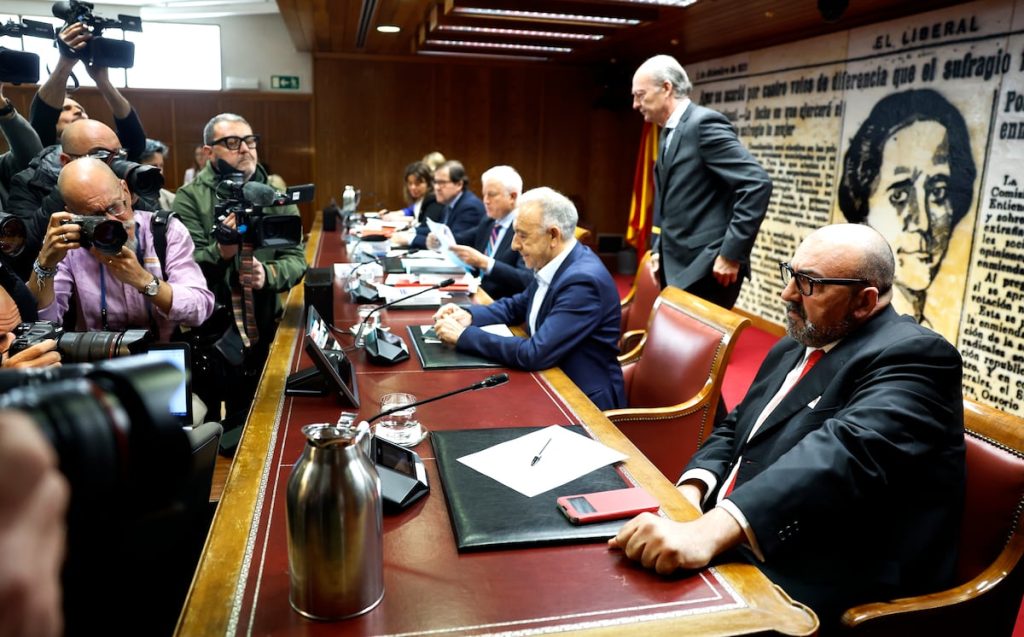The strategy employed by the PP in the Koldo case and the purchase of medical supplies during the pandemic is not going as planned. There are internal criticisms and justifications within the party, as key figures from the government and the PSOE have already appeared in the investigations. The threat of calling the president’s wife, Begoña Gómez, to testify in the Senate remains as their last resort, as the interrogations have not yielded any conclusive evidence tying the Koldo case to the government or the PSOE beyond his connections to certain businessmen.
During the interrogation of José Luis Ábalos in the Senate commission on the Koldo case, the atmosphere was unexpectedly friendly, with even the PP senators treating him with some sympathy. Similar experiences were shared during the questioning of other key figures, such as Santos Cerdán, Salvador Illa, and Francina Armengol, with no significant breakthroughs in the investigations. This has left both the senators involved and important PP leaders dissatisfied with the outcome of the commissions, leading to discussions on how to improve the situation and coordinate their approach better.
Alfonso Serrano, a key figure in the PP of Madrid, faced criticism for his handling of the interrogation in the Koldo commission. The lack of concrete results in uncovering any wrongdoing by the PSOE or the government has left many within the PP disillusioned with the effectiveness of their strategy. Some senators defend their approach, citing challenges in questioning witnesses who are skilled at evading direct answers and lack of comprehensive information from the evidence seized in the case.
Despite these challenges, some senators like Luis Santamaría claim satisfaction with their work, emphasizing that the commissions have revealed errors and negligence in the contracting process that led to public resources being misappropriated by corrupt individuals. The interrogations have also shed light on the connections between the accused and higher-ranking figures, reinforcing the notion that Koldo was not the mastermind behind the scheme. However, the overall sentiment within the PP is one of disappointment over the lack of substantial findings to support their allegations.
The PSOE perceives the PP’s efforts as a failed attempt to construct a narrative against them, with their strategy falling short in uncovering any substantial evidence of wrongdoing. They view the desperation and frustration among the PP spokespeople as a consequence of their inability to substantiate their claims. The PSOE plans to counteract this narrative by calling on members of the Balearic government, particularly Marga Prohens, to explain their handling of the mask procurement controversy. The PP, on the other hand, is undecided on their next steps in the Senate commission, leaving the possibility of calling Begoña Gómez for testimony in the future.
As both parties navigate the challenges and setbacks in the commissions, there are discussions behind the scenes on how to conclude the investigations without causing further damage to their respective reputations. The PSOE aims to continue pressing for answers and accountability from the opposition, while the PP grapples with internal criticisms and reflections on their strategy moving forward. The outcome of these investigations remains uncertain, as both sides strategize their next moves to navigate the political fallout from the Koldo case and the procurement scandal during the pandemic.















